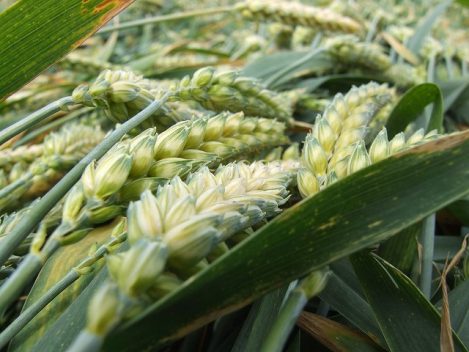Read more about Professor Corinna Hawkes' presentation at the Science for Defra: excellence in the application of evidence conference hosted by the Royal Society.

I recently presented at the Science for Defra: excellence in the application of evidence conference hosted by the Royal Society.
The conference aimed to both showcase and improve the current use of science by Government. It also aimed to facilitate an open discussion between the academic and policy communities. In my talk I focused on the importance of connections, both between government departments and academic disciplines, for a coherent food policy that brings multiple benefits across society and the environment. These are a few of the points I made:
- What food is produced, how it is produced, what food is eaten, how food is priced and marketed, and how it is distributed all have an impact on health, economy and environment. These aspects of the food system are interlinked and involve an array of policy areas. When science is applied to this system it thus affects not just the specific area targeted, but has a ripple effect throughout the whole system. Because of this, if food policy is to have positive outcomes across the board, it needs to be designed in a coherent way across the system.
- Food policy is not just about production and producers, although it has been, historically, including Europe’s Common Agricultural Policy (CAP). However a new broader perspective from policymakers is required if food policy is to ensure good outcomes across the food system. This more integrated approach is recognised by the international agenda driving development, the Sustainable Development Goals, and is beginning to be recognised by policy makers.
- A coherent food policy needs to bring together science from across the board – from epidemiology to nutritional science, food science to agricultural science. Science in the health field is a good example of why we need to be looking beyond agricultural science for evidence to shape our food system. We know from epidemiology that dietary risks are the leading cause of disease in the world today, and are a major issue in the UK. Similarly, nutritional science tells us what a healthy diet is, and that the UK public is not eating food that accords with dietary advice – fruit and vegetable consumption is much lower than the recommended levels. If we were to take a purely agricultural science approach to the solution we may end up with a greater supply. But relying on this science alone is not going to solve the problem of inadequate fruit and vegetable intake if there are no markets in place to get it to the people who are eating too little, and it is not affordable and acceptable to people. This means that science needs to start by understanding the reasons why people are not consuming enough in the first place and then assess the role of different forms of science in contributing to solving the problem.
- Science is not the only relevant source of evidence in food policy. Arguably the biggest driver of the food system is economics, which influences both what gets produced and what gets consumed. There is also the human element of the values and preferences of politicians. So as well as understanding what lies beneath people’s food choices, it is important to engage early with policymakers to learn about their priorities and so produce the right evidence, in the right format to inform policy. As the UK leaves the EU we have a unique opportunity to formulate joined-up, coherent food policy, but to do so requires connecting science, policy and people. This is why the Food Research Collaboration of the Centre for Food Policy is working on a project to identify what legislative changes post-Brexit could provide a more coherent approach to food policy in the UK.
This is one in a short series of blog posts summarising the recent ‘Science for Defra: excellence in the application of evidence’ conference, held at the Royal Society on 29 and 30 March. For more conference outputs see the conference event page and keep your eye on In Verba for summary blogs of the other sessions by our Fellows.
